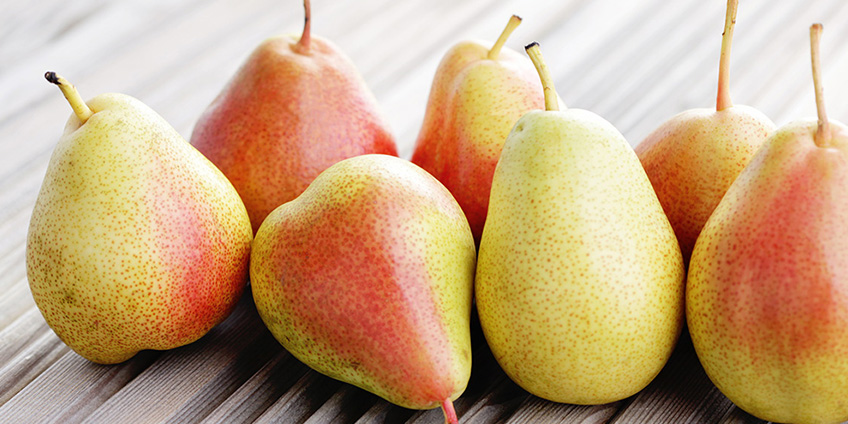Pears are also amazing for digestion. They act as an antispasmodic; help to soothe the linings of the stomach and intestinal tract; feed beneficial bacteria; starve and kill unproductive bacteria, parasites, and fungus; raise hydrochloric acid in the stomach; may even help prevent intestinal and stomach cancers; and reduce the bad acids produced by mucus and pathogens such as H. pylori. They also restore linings in the gut that have become damaged and calloused from bacteria.
The little granules in a pear’s flesh are loaded with phytochemicals, trace minerals, and amino acids such as valine, histidine, threonine, and lysine. The trace minerals and amino acids combine and lock onto poisons in the body such as pesticides, expelling them from your system. Trace mineral salts make pear juice high in electrolytes, which stabilizes blood sugar. Plus, pears are a great weight-loss food and heaven-sent for the liver, helping to cleanse and purify the organ. Bring pears into your life, and you’ll see that they’re anything but boring.
Emotional Support
An overburdened, overstressed, and overheated pancreas and liver are often behind someone’s unsettled emotions such as frustration, irritation, uneasiness, or lack of peace. Pears are the ideal food to remedy this situation, because they are the ultimate cooling tonic, especially for the liver and pancreas.
Spiritual Lesson
The pear’s simplicity is a lesson for us all. Here’s a fruit that’s not complicated in the least, not flashy, exotic, hard to find, nor hard to eat—and that doesn’t reduce its power by one ounce. Gentle, unassuming, and quietly beautiful, pears can care for your body in a particular manner that no other fruit can. They teach us that we don’t have to cry out for attention or sit in resentment of not being noticed. We, too, can hold on to our true selves and fully possess our power without any need for show.
Tips
• Each phase of a pear’s ripening process has value. When a pear is hard and crunchy, that means its fiber content is high, which lowers bad cholesterol and sweeps out mucus, pathogens, and other debris from the intestinal tract. Crunchy pear slices are a great addition to salads. When a pear is soft and juicy, its glucose levels are higher, and it’s very easy to digest. Blended, ripe pear is an ideal food for someone recovering from food poisoning or another circumstance that kept her or him from eating.
• Pears are best eaten between breakfast and lunch, or in the late afternoon (shortly before dinner). They act as an appetite suppressant and stomach tonic to prevent you from craving sweets or overeating at meals.
• As a substitute for apple, try ripe pear in your fresh green-juice blends.
Adapted from Life-Changing Foods, Anthony William (Hay House, 2016)






0 Comments